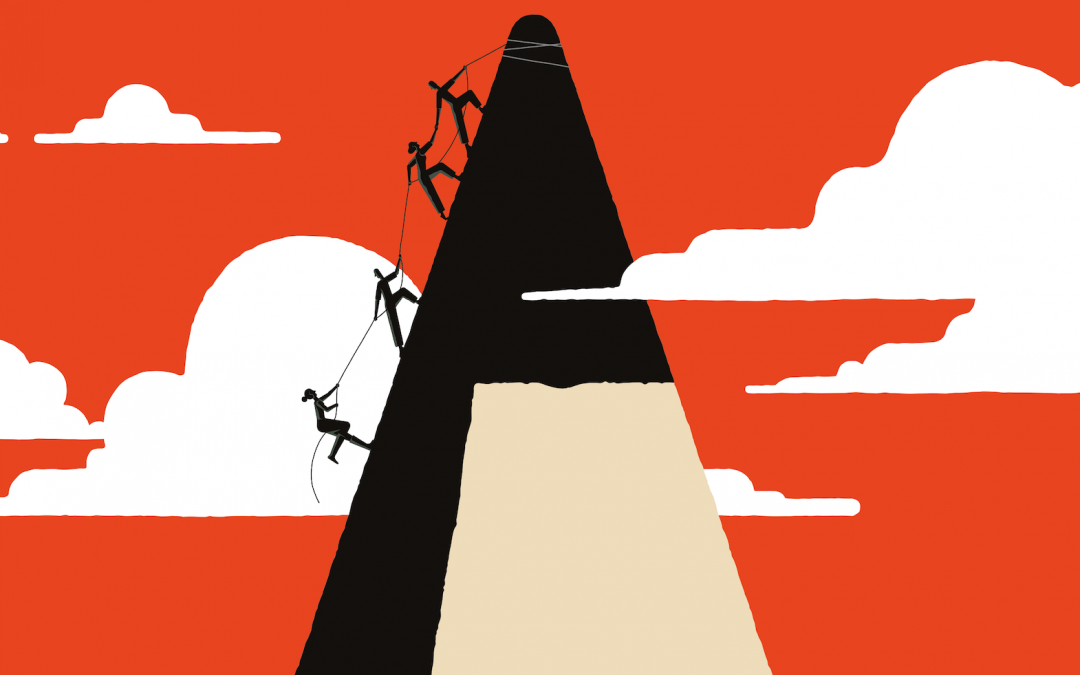
Head of School

The Essence of Community
Dare to be true is a call to action for making the world a better place.
By Alixe Callen ’88
Illustration by Martin Leon Barreto
As Milton students know (because I remind them all the time!), I have a favorite word. “Community.”
I have long believed that the most important intellectual work of schools is to teach students how to be productive and contributing members of their communities. To achieve that objective, students need practice—the opportunity to participate in a fully functioning (and functional) community. Our job as adults in schools is to help students cultivate a school community defined by purpose, respect, pride, and joy.
The good news is that at a school like Milton this work comes easily. Our students, our faculty, and our staff jump in every day, enthusiastically participating in school activities, showing up to cheer one another on, championing one another day in and day out. But thanks to the school’s long-held values, our community goes beyond the rah-rah.
“Dare to be true” may be the most iconic school motto in the history of school mottos. It was adopted in 1898, and since then, the phrase has received multiple interpretations. Originally part of a line in a poem by the 17th-century English priest and orator George Herbert, “Dare to be true” began as moral guidance (the full line is “Dare to be true. Nothing can need a lie”), and it has proved to grow with us as our school, ever evolving, moves through the decades. In a detailed history of the motto, former Milton faculty member Markham W. Stackpole wrote: “For us, the meaning of those words ‘Dare to be true’ goes beyond truthfulness in intent, speech, and action, vastly important as that is, and includes the three great principles of courage, truthfulness, and loyalty.”
One of the misconceptions about “Dare to be true” is that it focuses solely on the individual. A quick reading suggests that it’s about autonomy or personal liberty—a reminder to be true to ourselves. But I believe that to effectively embrace “Dare to be true,” we must endeavor to create a world where everybody can dare to be true, where all of us feel comfortable sharing our true selves. That is the essence of community.
I witness members of the Milton community daring to be true every single day. Our students aren’t waiting until they graduate to make a difference: From advocating for youth financial-literacy education in front of the state legislature, to coaching and cheering on Special Olympics athletes, to mentoring peers in younger grades, Milton students are actively building our community, improving it all the time.
Many, many Milton alumni carry this daring spirit throughout their lives. Patricia Spence ’76, whose impressive résumé in both the corporate and nonprofit worlds could take her anywhere, is the founding president and CEO of the Urban Farming Institute, which feeds and uplifts residents in Boston’s underserved neighborhoods. Patrick Radden Keefe ’94 exemplifies daring: As an investigative journalist, he has uncovered truths that powerful people would have preferred to keep hidden, including the roots of our country’s devastating opioid crisis and the international reach of violence in Northern Ireland. Charlie Enright ’02 is one of the best sailors in the world—he captained the first American team to win the prestigious global Ocean Race in 2023. Rather than resting on their laurels, Charlie and his team, 11th Hour Racing, are using their platform to advocate for ocean health and promote sustainability, shining a light on the urgent need for climate action.
I could go on. Stories about our graduates and their positive impact on the world would fill a library of pages. In this issue, you’ll read about even more Milton people who keep community—teams, workforces, and social dynamics—at the center of their work. They recognize the need for people to connect and collaborate, to learn from one another, and to be part of something bigger than themselves.
At Convocation this year, I told students my truth, which is that my belief in the power of community started here at Milton. I shared some stories about my inauspicious early days as a sophomore in Good- win House—beginning my Milton soccer career with an ACL tear in my first game, adjusting to a level of academic rigor I’d never experienced before, and being new in a tight-knit dorm—and all the ways my world opened up and brightened when I let down my guard, when I found my people. The friends who accepted and loved me for who I am and the teachers who championed my growth helped me understand the power of connection and vulnerability. I encouraged students to reach out and share their truths in good times and bad, and to support others in doing the same.
I love that our motto is a directive, that it demands action: To dare is to step outside our comfort zones, to take risks, to live boldly and challenge the status quo. Milton—its students, faculty and staff, and the families who support our school—has the power to show the world what a caring, inclusive, enthusiastic, serious, and joyful community can do.




